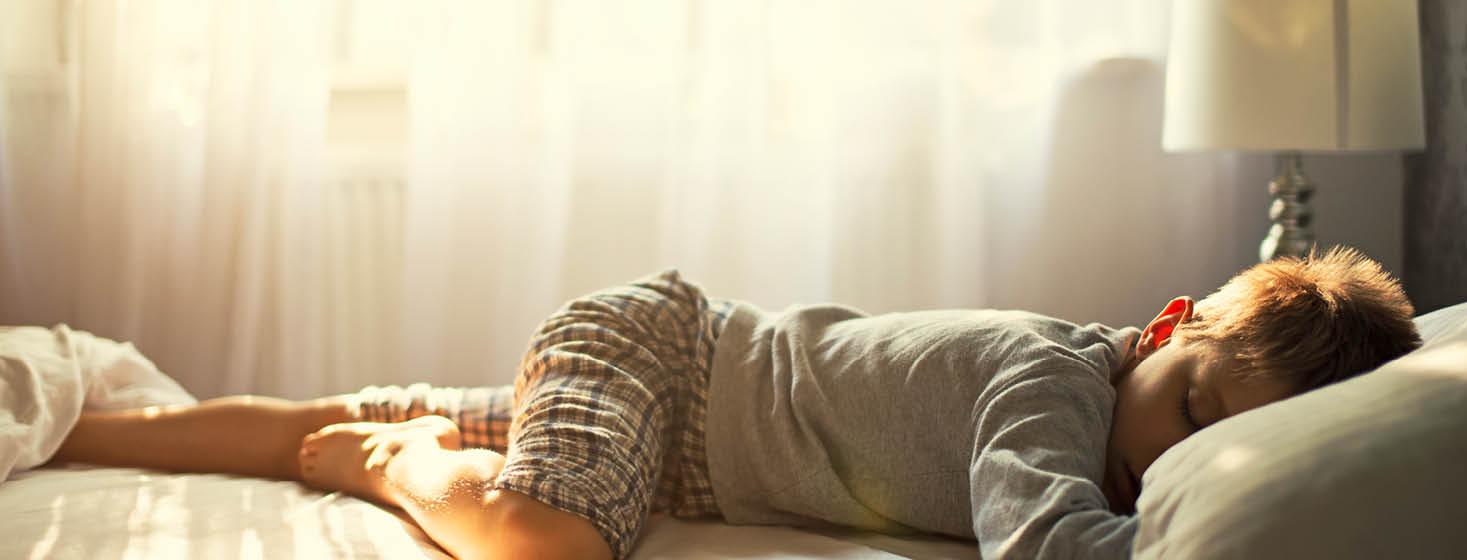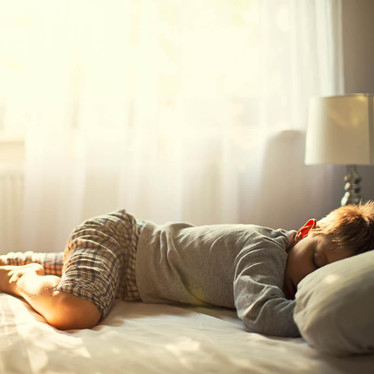
Sleep is a dynamic and active state during which the body heals and recuperates. Sleep is important for every system in our body and aids in cell repair, immune health, stress reduction, memory consolidation, chemical detoxification and emotional wellbeing. When you don’t get enough sleep for the day, you will find yourself succumbing to that groggy, heavy feeling that hinders your work and makes you less functional. Often sleeplessness can be accompanied by daytime headaches and poor focus. So if this is what normal adults feel when sleep-deprived, how does lack of sleep affect children?
When children do not get enough sleep, they usually feel cranky, tired and unable to focus or think clearly. Simple instructions become hard to follow and for the whole day everything they do may end up done incorrectly. Additionally, lack of sleep can affect a child’s cognitive development, physical growth and immune function, leaving them more susceptible to illness.
The average child has a busy day ahead of them with school, sports, homework & other extra-curricular activities. Kids these days can be just as busy as their working parents so it is not surprising that at the end of the day, their body and brain is in need of a break.
For this reason, children need as much sleep as they can in order to recharge and recuperate for the following day’s activities. The average child needs between 9.5 to 11 hours of sleep every night. Each child’s sleep requirement will vary so it is important to look out for your child’s tired signs to determine whether they are getting enough sleep or not. Tired signs can include short attention spans, irritability, being overly sleepy at the wrong time of day or paradoxically becoming ‘wired’ before bedtime.
Tips on helping your child get enough sleep
The most important sleeping tip for children is to have a regular sleep schedule. Having a consistent bed time and wind-down routine will help encourage calm and relaxation and teach your child to know when it is time to go to sleep. In addition to having a regular sleep routine the following tips can also be helpful in supporting sleep in children:
- Watch out for food and drink consumption between bedtime and dinner. Make sure that your child stays away from sweets and caffeine before going to sleep.
- Avoid technology (particularly screen interaction) and stimulating activities before bedtime as these can make your child more alert and interrupt their sleep hormone production. Instead opt for relaxing activities such as reading.
- Make your child’s room dark and quiet – to promote sleepiness – and a place that she can enjoy and feel comfortable.
- If your child is waking frequently and/or complains of a sore tummy it may be a good idea to have an allergy test done as low-grade food sensitivities can often cause children to be alert and restless at night. If your child has known allergies probiotics can be helpful to restore good gut bacteria and support optimal digestive function.
- If your child is anxious or restless in the night (or day) nutritional supplementation can help to support healthy nervous and adrenal function. Look for a comprehensive formula that contains magnesium, zinc, potassium, B vitamins and vitamin C to feed the sleep pathways in the body and promote optimal nervous system health.
- Supplementing with a gentle herbal sleep remedy can also help to calm and settle your child and ensure that they are achieving high-quality, restorative sleep.
By making sure that your child gets enough sleep each night you can rest assured that they will be bright and bubbly and ready for whatever the day ahead has in store for them.
By Kirsten Taylor
Naturopathic Sleep Specialist
SleepDrops offer a range of all-natural, NZ-made sleep and stress remedies for all ages including SleepDrops for Kids, SleepDrops for Babies, Essential Sleep and Stress Nutrients and Daytime Revive. Buy them now from our secure online shop.
We'd Love Your Feedback
Do have any children’s sleep stories you would like to share?
What age are your children, and what is their usual bedtime?

